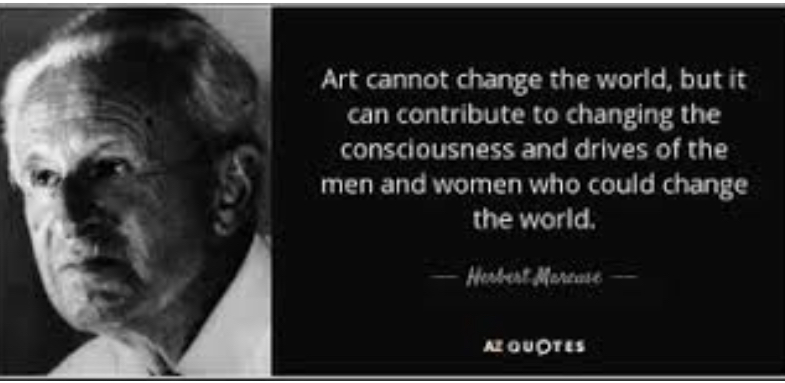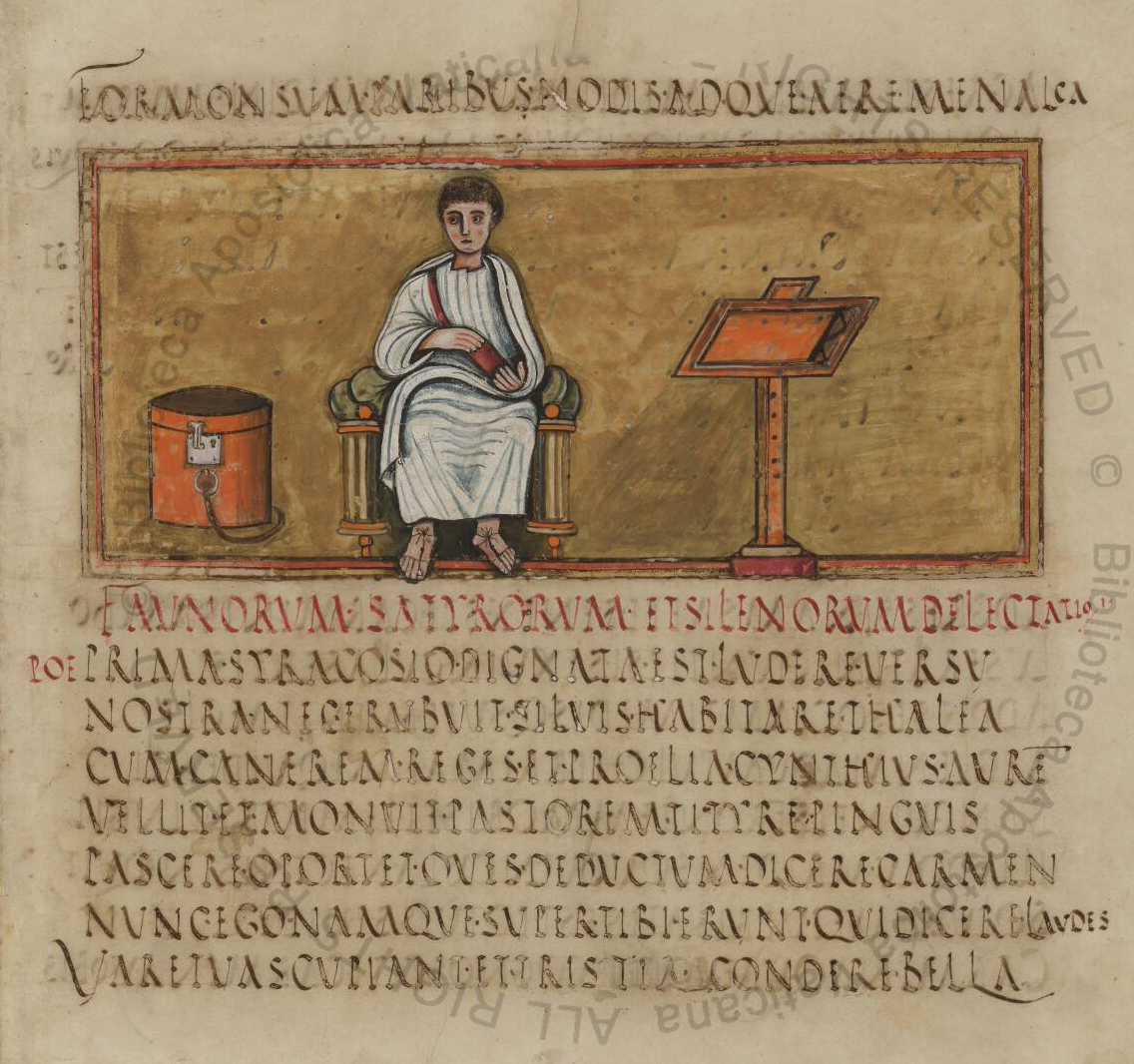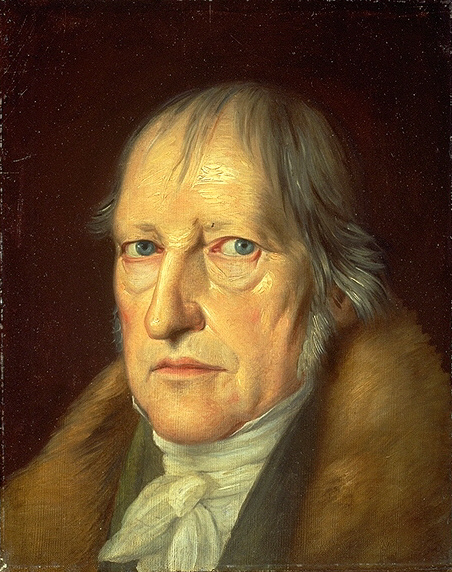|
Reason And Revolution
''Reason and Revolution: Hegel and the Rise of Social Theory'' (1941; second edition 1954) is a book by the philosopher Herbert Marcuse, in which the author discusses the social theories of the philosophers Georg Wilhelm Friedrich Hegel and Karl Marx. Marcuse reinterprets Hegel, with the aim of demonstrating that Hegel's basic concepts are hostile to the tendencies that led to fascism. The book has received praise as an important discussion of Hegel and Marx. Summary Marcuse attempts to show that "Hegel's basic concepts are hostile to the tendencies that have led into Fascist theory and practice." Marcuse criticizes the thesis, propounded by the sociologist Leonard Hobhouse in ''The Metaphysical Theory of the State'' (1918), that Hegel provided an ideological preparation for German authoritarianism. In an appendix to the 1960 edition, Marcuse states that the "only major recent development in the interpretation of Hegel's philosophy is the postwar revival of Hegel studies in F ... [...More Info...] [...Related Items...] OR: [Wikipedia] [Google] [Baidu] |
Herbert Marcuse
Herbert Marcuse (; ; July 19, 1898 – July 29, 1979) was a German-American philosopher, social critic, and political theorist, associated with the Frankfurt School of critical theory. Born in Berlin, Marcuse studied at the Humboldt University of Berlin and then at Freiburg, where he received his PhD. He was a prominent figure in the Frankfurt-based Institute for Social Research – what later became known as the Frankfurt School. He was married to Sophie Wertheim (1924–1951), Inge Neumann (1955–1973), and Erica Sherover (1976–1979). In his written works, he criticized capitalism, modern technology, Soviet Communism and popular culture, arguing that they represent new forms of social control. Between 1943 and 1950, Marcuse worked in US government service for the Office of Strategic Services (predecessor of the Central Intelligence Agency) where he criticized the ideology of the Communist Party of the Soviet Union in the book '' Soviet Marxism: A Critical Analysis'' (195 ... [...More Info...] [...Related Items...] OR: [Wikipedia] [Google] [Baidu] |
Marx's Theory Of Alienation
Karl Marx's theory of alienation describes the estrangement (German: ''Entfremdung'') of people from aspects of their human nature (''Gattungswesen'', 'species-essence') as a consequence of the division of labor and living in a society of stratified social classes. The alienation from the self is a consequence of being a mechanistic part of a social class, the condition of which estranges a person from their humanity. The theoretical basis of alienation is that the worker invariably loses the ability to determine life and destiny when deprived of the right to think (conceive) of themselves as the director of their own actions; to determine the character of said actions; to define relationships with other people; and to own those items of value from goods and services, produced by their own labour. Although the worker is an autonomous, self-realized human being, as an economic entity this worker is directed to goals and diverted to activities that are dictated by the bourgeoisie� ... [...More Info...] [...Related Items...] OR: [Wikipedia] [Google] [Baidu] |
English-language Books
English is a West Germanic language of the Indo-European language family, with its earliest forms spoken by the inhabitants of early medieval England. It is named after the Angles, one of the ancient Germanic peoples that migrated to the island of Great Britain. Existing on a dialect continuum with Scots language, Scots, and then closest related to the Low German, Low Saxon and Frisian languages, English is Genetic relationship (linguistics), genealogically West Germanic language, West Germanic. However, its vocabulary is also distinctively influenced by Langues d'oïl, dialects of France (about List of English words of French origin, 29% of Modern English words) and Latin (also about 29%), plus some grammar and a small amount of core vocabulary influenced by Old Norse (a North Germanic language). Speakers of English are called Anglophones. The earliest forms of English, collectively known as Old English, evolved from a group of West Germanic (Ingvaeonic) dialects brought to ... [...More Info...] [...Related Items...] OR: [Wikipedia] [Google] [Baidu] |
Books About Marxism
A book is a medium for recording information in the form of writing or images, typically composed of many pages (made of papyrus, parchment, vellum, or paper) bound together and protected by a cover. The technical term for this physical arrangement is ''codex'' (plural, ''codices''). In the history of hand-held physical supports for extended written compositions or records, the codex replaces its predecessor, the scroll. A single sheet in a codex is a leaf and each side of a leaf is a page. As an intellectual object, a book is prototypically a composition of such great length that it takes a considerable investment of time to compose and still considered as an investment of time to read. In a restricted sense, a book is a self-sufficient section or part of a longer composition, a usage reflecting that, in antiquity, long works had to be written on several scrolls and each scroll had to be identified by the book it contained. Each part of Aristotle's ''Physics'' is called a bo ... [...More Info...] [...Related Items...] OR: [Wikipedia] [Google] [Baidu] |
Books About Revolutions
A book is a medium for recording information in the form of writing or images, typically composed of many pages (made of papyrus, parchment, vellum, or paper) bound together and protected by a cover. The technical term for this physical arrangement is ''codex'' (plural, ''codices''). In the history of hand-held physical supports for extended written compositions or records, the codex replaces its predecessor, the scroll. A single sheet in a codex is a leaf and each side of a leaf is a page. As an intellectual object, a book is prototypically a composition of such great length that it takes a considerable investment of time to compose and still considered as an investment of time to read. In a restricted sense, a book is a self-sufficient section or part of a longer composition, a usage reflecting that, in antiquity, long works had to be written on several scrolls and each scroll had to be identified by the book it contained. Each part of Aristotle's ''Physics'' is called a bo ... [...More Info...] [...Related Items...] OR: [Wikipedia] [Google] [Baidu] |
Books About Karl Marx
A book is a medium for recording information in the form of writing or images, typically composed of many page (paper), pages (made of papyrus, parchment, vellum, or paper) bookbinding, bound together and protected by a book cover, cover. The technical term for this physical arrangement is ''codex'' (plural, ''codices''). In the history of hand-held physical supports for extended written compositions or records, the codex replaces its predecessor, the scroll. A single sheet in a codex is a Recto, leaf and each side of a leaf is a page (paper), page. As an intellectual object, a book is prototypically a composition of such great length that it takes a considerable investment of time to compose and still considered as an investment of time to read. In a restricted sense, a book is a self-sufficient section or part of a longer composition, a usage reflecting that, in antiquity, long works had to be written on several scrolls and each scroll had to be identified by the book it co ... [...More Info...] [...Related Items...] OR: [Wikipedia] [Google] [Baidu] |
Books About Georg Wilhelm Friedrich Hegel
A book is a medium for recording information in the form of writing or images, typically composed of many pages (made of papyrus, parchment, vellum, or paper) bound together and protected by a cover. The technical term for this physical arrangement is ''codex'' (plural, ''codices''). In the history of hand-held physical supports for extended written compositions or records, the codex replaces its predecessor, the scroll. A single sheet in a codex is a leaf and each side of a leaf is a page. As an intellectual object, a book is prototypically a composition of such great length that it takes a considerable investment of time to compose and still considered as an investment of time to read. In a restricted sense, a book is a self-sufficient section or part of a longer composition, a usage reflecting that, in antiquity, long works had to be written on several scrolls and each scroll had to be identified by the book it contained. Each part of Aristotle's ''Physics'' is called a bo ... [...More Info...] [...Related Items...] OR: [Wikipedia] [Google] [Baidu] |
1941 Non-fiction Books
Events Below, the events of World War II have the "WWII" prefix. January * January–August – 10,072 men, women and children with mental and physical disabilities are asphyxiated with carbon monoxide in a gas chamber, at Hadamar Euthanasia Centre in Germany, in the first phase of mass killings under the Action T4 program here. * January 1 – Thailand's Prime Minister Plaek Phibunsongkhram decrees January 1 as the official start of the Thai solar calendar new year (thus the previous year that began April 1 had only 9 months). * January 3 – A decree (''Normalschrifterlass'') promulgated in Germany by Martin Bormann, on behalf of Adolf Hitler, requires replacement of blackletter typefaces by Antiqua. * January 4 – The short subject ''Elmer's Pet Rabbit'' is released, marking the second appearance of Bugs Bunny, and also the first to have his name on a title card. * January 5 – WWII: Battle of Bardia in Libya: Australian and British troops de ... [...More Info...] [...Related Items...] OR: [Wikipedia] [Google] [Baidu] |
Frederick Ungar Publishing Company
Frederick Ungar Publishing Company was a New York publishing firm which was founded in 1940. History The Frederick Ungar Publishing Company published over 2,000 titles, including reference books such as the ''Encyclopedia of World Literature in the 20th Century'' and many works on literature and cinema. The more than 200 translations published by the firm of works by such authors as Thomas Mann, including his '' Betrachtungen eines Unpolitischen'' (1918) (translated as ''Reflections of a Nonpolitical Man''), Erich Fromm and Goethe helped make those works more popular in the United States.(19 November 1988)Frederick Ungar; World Literature Publisher ''Los Angeles Times'' The company was acquired by Continuum Publishing Company in 1985.McDowell, Edwin (14 September 1985)UNGAR PUBLISHING IS BOUGHT BY CONTINUUM ''The New York Times'' Frederick "Fritz" Ungar Frederick "Fritz" Ungar (born Friedrich Ungar) worked as a publisher from 1922 and co-founded the publishing houses Phaidon ... [...More Info...] [...Related Items...] OR: [Wikipedia] [Google] [Baidu] |
MIT Press
The MIT Press is a university press affiliated with the Massachusetts Institute of Technology (MIT) in Cambridge, Massachusetts (United States). It was established in 1962. History The MIT Press traces its origins back to 1926 when MIT published under its own name a lecture series entitled ''Problems of Atomic Dynamics'' given by the visiting German physicist and later Nobel Prize winner, Max Born. Six years later, MIT's publishing operations were first formally instituted by the creation of an imprint called Technology Press in 1932. This imprint was founded by James R. Killian, Jr., at the time editor of MIT's alumni magazine and later to become MIT president. Technology Press published eight titles independently, then in 1937 entered into an arrangement with John Wiley & Sons in which Wiley took over marketing and editorial responsibilities. In 1962 the association with Wiley came to an end after a further 125 titles had been published. The press acquired its modern name af ... [...More Info...] [...Related Items...] OR: [Wikipedia] [Google] [Baidu] |
Martin Heidegger
Martin Heidegger (; ; 26 September 188926 May 1976) was a German philosopher who is best known for contributions to phenomenology, hermeneutics, and existentialism. He is among the most important and influential philosophers of the 20th century. He has been widely criticized for supporting the Nazi Party after his election as rector at the University of Freiburg in 1933, and there has been controversy about the relationship between his philosophy and Nazism. In Heidegger's fundamental text ''Being and Time'' (1927), "Dasein" is introduced as a term for the type of being that humans possess. Dasein has been translated as "being there". Heidegger believes that Dasein already has a "pre-ontological" and non-abstract understanding that shapes how it lives. This mode of being he terms " being-in-the-world". Dasein and "being-in-the-world" are unitary concepts at odds with rationalist philosophy and its "subject/object" view since at least René Descartes. Heidegger explicitly disag ... [...More Info...] [...Related Items...] OR: [Wikipedia] [Google] [Baidu] |
Hegel's Ontology And The Theory Of Historicity
''Hegel's Ontology and the Theory of Historicity'' (german: Hegels Ontologie und die Grundlegung einer Theorie der Geschichtlichkeit) is a 1932 book about the philosopher Georg Wilhelm Friedrich Hegel and his theory of historicity by the philosopher Herbert Marcuse. It is influenced by the philosopher Martin Heidegger. The book received positive reviews upon its publication in English translation in 1987. It is considered essential for understanding Marcuse's later intellectual development. However, the book has been criticized for Marcuse's failure to define the term "historicity". Summary Marcuse attempts to reinterpret the works of Georg Wilhelm Friedrich Hegel, including ''The Phenomenology of Spirit'' (1807) and the ''Science of Logic'' (1812), and "to disclose and to ascertain the fundamental characteristics of historicity", the factors that "define history" and distinguish it from other phenomena such as nature. He also discuses other works of Hegel such as ''The Differenc ... [...More Info...] [...Related Items...] OR: [Wikipedia] [Google] [Baidu] |







